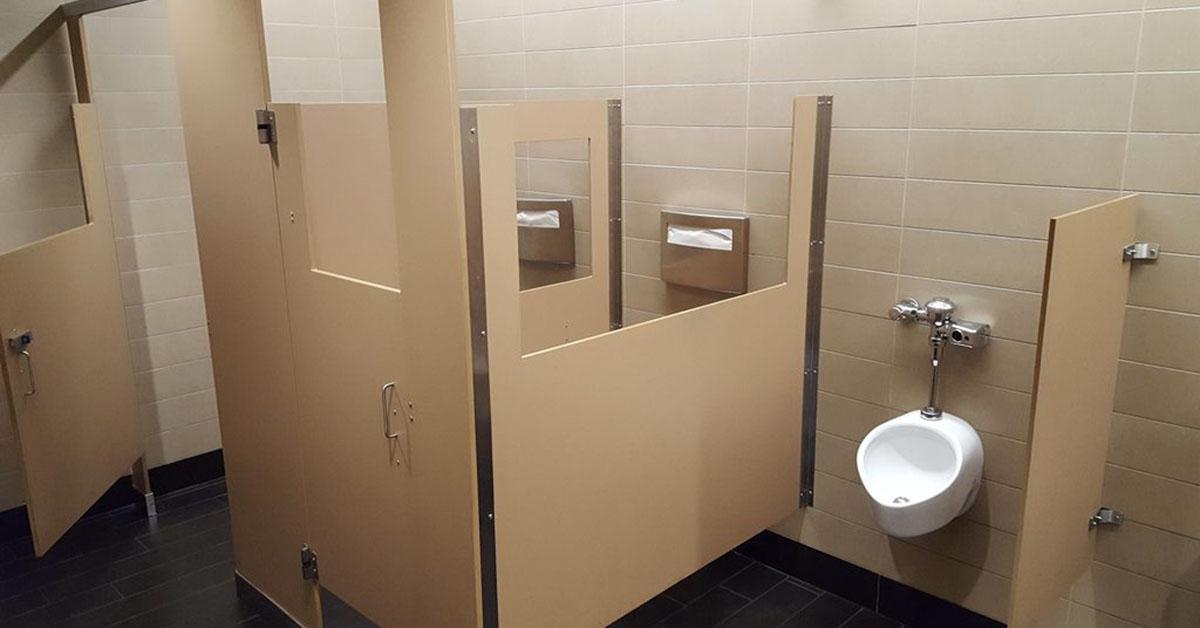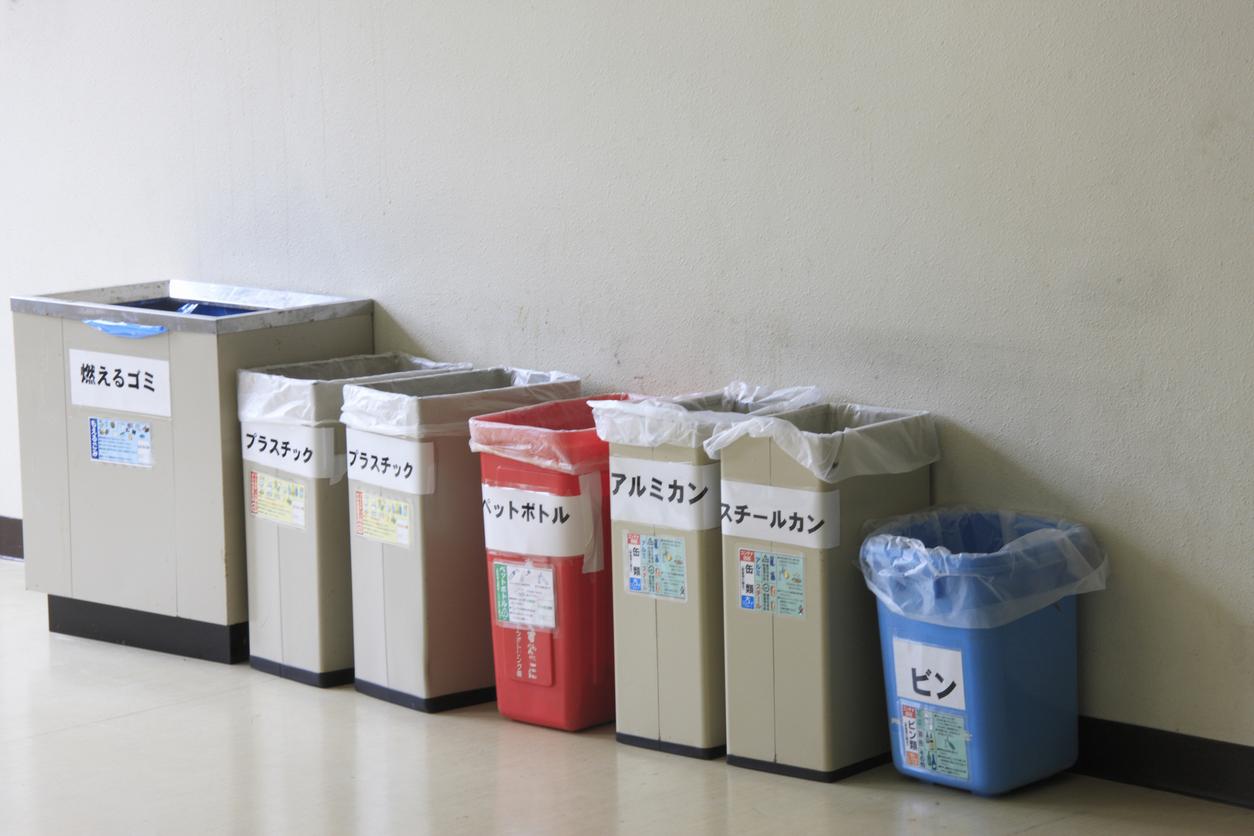These Are the Weirdest Things Americans Do, According to People in Other Countries
Updated Sept. 4 2023, 11:41 a.m. ET

It probably doesn't require a great deal of self-reflection to wrap your mind around the idea that America is a really strange place. If you grew up around immigrants or in an even slightly heterogenous community, you've probably picked up on some totally American norms people from other parts of the world look at with disgust.
When I was growing up, one of the small things I took for granted, being born and raised here, was the strangeness of meal-accompanying beverages my mother always sought to point out. She mentioned early on how turned off she was by her college roommate's desire for a Diet Coke with breakfast, and she was equally perplexed by the glass of milk the same woman enjoyed every evening with dinner.
So when people took to reddit to ask people from other countries what they found mind-blogging about American practices, the results did not disappoint. Read on to have your mind blown about our strange cultural practices, and to rethink 14 everyday norms you definitely take for granted.
1. They don't see the big deal with drinking in public.

Between open container citations and public intoxication laws, it's definitely illegal — if not grossly frowned upon by your prudent friends who aren't trying to get dragged into your antics — to drink alcohol in public in America.
But to people in the rest of the world, this concept is incredibly strange. When answering the question of what American norms are viewed differently in Japan, AsakiYumemiru didn't see the logic behind "drinking alcohol in public being a huge deal."
A Western redditor who frequently travels to Asia for work countered this observation by mentioning how "blown away" they were by the "level of midweek drunkenness among over-30 respectable business men and women" that goes on in Japan.
"You can drink beer like that in Germany!" added a European redditor. Having lived in Germany, I can vouch for the fact that even the public drinking there is carried out efficiently. "People leave their bottles beside trash cans so that people that scavenge them for recycling don't have to dig through the trash instead. 10/10 respect," writes Zerole00.
2. Prices are never what they say they are.

It can be incredibly frustrating to pick out something you want that costs one thing, and then learning it actually costs more than that once the cashier has rung it up.
"Not including tax in the price tags" is something that annoys many foreigners who visit America. User relayrider added, "yeah, that and tips..."
As an American, I'd be more than happy to get rid of these hidden costs as well. Like, how is one even supposed to know how much things truly cost? One unhelpful PM_ME_A_PLANE_TICKET responded, "sales tax is roughly 7% almost everywhere. Maybe 6.9% in county A, and 7.5% in county B. A $50 item would be $53 and change in both counties. You kind of do it in your head."
Wow, good thing calculators come standard on phones nowadays.
3. We wear our shoes inside the house.

We Americans are all, Why take off our shoes when we can trace everything we've stepped on throughout the day around our home?
As someone raised in an immigrant home, I was barely allowed inside the door without first taking my shoes off growing up, so this is a practice I truly don't condone. But a surprising amount of Americans see no problem with only taking their shoes off to sleep. "For [Americans who don't regularly experience downpours or heavy snow], shoes are kept in the bedroom and put on right after pants, and not removed until [it's] time to disrobe," explains kaihatsusha.
Foreign people, meanwhile, think wearing shoes inside the house is absolutely revolting. But that's not all — at least in Japan, they have different inside-the-house slippers for summer than they do for winter.
4. We eat like crap.

Fast food? Saturated fats? High-fructose corn syrup? It's pretty safe to say these are all American inventions, or at least things that wouldn't be as popular if it weren't for out unabashed consumption.
But people in other parts of the world eat way fresher and better. According to crusoe, Americans can also feel way healthier by taking a tip or two out of their books: "I've switched to a more Japanese-style diet. More rice, vegetables, fish, chicken. I've lost twenty pounds and my guts have felt way better. Plus it's super easy to cook ... I find even their fried foods don't feel as heavy."
"In a country facing high obesity rates, the junk food is cheaper than the healthier stuff by quite a bit," writes another redditor about the strange nutritional practices of Americans. It's true that our fast food is insanely cheap while we basically have to choose between spending money on organic groceries or filling up our tanks to drive to work. "It's so bizarre to see those ads that are like MASSIVE AMOUNTS OF CHICKEN NUGGETS FOR A DOLLAR!!!" echoed another foreigner.
5. Public bathrooms are too public.

If you ever wondered why there is a gap between the door and frame of a public bathroom stall, you are not alone.
"Having weirdly large gaps in your toilet doors. It’s just not necessary guys," one foreign redditor mused. Another agreed, sharing a photo of the future of American public restrooms. "This is in the Seattle Convention Center. When I was there just standing at the urinal you could see into the whole stall," @McHaloKitty added. OMG. That is horrifying.
6. All of our drinks have sugar in them.

You might say not all drinks in America have sugar, but I'd challenge you to come up with five non-water beverages. In other countries, and especially in Japan, there are far more options when you (and your waistline) aren't dying to imbibe pure saccharine.
User AsakiYumemiru said it's abhorrent for Asian people to see Westerners "putting sugar in green tea," and also called out our lack of sugar-free beverages.
Even Americans lamented how "all of our drinks have sugar in them, except for water." One even added that they'd "love to have sugar-free tasty drinks without artificial sugars in them too, the whole Stevia hype is so gross."
You hear that, Coca-Cola?
7. Japanese people don't know what to do with apples.

If you pull out an apple from your bag but don't have a knife on you to peel it, you're going to seem BIZARRE in Japan.
"My staff stared at me when I ate the skin on my apple," writes DJFiregirl. "But they don't bat an eye at raw fish..." Another tourist shared his experience in Japan: "One time I went to that yearly thing at the Imperial Palace where the Emperor stands and waves to people. I had an apple as a snack, and going through security, they were very alarmed by this, asking 'Where's your knife!' I was confused until they clarified that, since I have an apple, it only stands to reason that I have a knife somewhere to peel it."
This practice is especially hilarious to me after reading about mch026's picnic: "We had bought food, including apples, at the grocery store on the way. We didn't have knives to cut our apples, so our Japanese friends weren't sure how to eat them."
8. We're really loud.

The most common complaint from foreigners who are visiting the other countries? "Why is everyone so loud in public?"
Once you get down to the nitty-gritty, though, it seems Americans are the real culprits here. "That's mostly Americans, you can hear them from miles away," responded Aethien. Another non-Yankee added, "I think you guys have really bassy accents. TV doesn't show it well. Heard an American live and my ears shook for days."
Ouch. Some people came to America's defense, claiming not ALL Americans are guilty. "I'm an American who doesn't feel the need to project like a theater actor when I'm three feet away," wrote one guy, while a Dutch redditor chimed in to say "We Westerners are perhaps relatively loud ... but also a certain amount of Westerners are annoyed by publicly loud people, too."
These people should probably not set foot in South America, to be quite honest.
9. American teenagers hang out too much.

My foreign mom never understood why I wanted to stay late at school if I didn't have some sort of club activity. Just sitting around with friends was never a good enough excuse, as that kind of hanging out was only something delinquents did back in her Latin American country.
Foreigners tend to side with my mom, it seems, much to the dismay of their American children. "I wasn't allowed to hang out with friends after school, because apparently in Japan only delinquents and idiots hang out after school," shared clockworkswrong.
"Teenagers shouldn't be focusing on partying. [They should be] focused on getting better at school or club activities," added another. "Not being able to hang out after school was a pain and a hindrance to teenage social life!" they continued. "I do remember trying to convince my mother [that] 'all the other kids do it,' ... but she was adamant [that was] not 'normal' for a teenager, [even though it was] where we lived."
Sigh, I feel your pain.
10. Work culture is really different.

I realize a lot of expats must move from America to other countries for work, and vice versa, but after reading through this thread of cultural differences in the workplace, it's hard to understand how anyone can adjust.
For example, in Asia, wives don't work, so you'll stick out like a sore thumb if you're a mom with a 9-to-5. But for men, things are really shockingly different there as well.
Like, 9-to-5? More like, 9-to-whenever. Americans' "eagerness to leave the office on time" puts many people off in Japan, according to kurodon85. They even have a term for this rudeness — "teiji dasshu" — and are always in shock when they come to the U.S. and see people actually leave their desk after sitting at it for eight hours.
Meanwhile, Europeans think Americans work too hard. Danaldinho007 highlights this cultural norm: "I get 25 days paid leave as well as up to 10 days sick leave annually, as well as having the option to sacrifice a bit of my salary to get up to an extra 5 days annual leave. From what I hear, you Americans get nothing like this."
Ha! You hear correctly. Just typing out all those European work perks made me cringe.
11. We are bad at sorting our trash.

I can't think of how many times I've patted myself on the back just for properly disposing of my recycling, or how many times I've pulled out hair in frustration because I don't fully "get" what is supposed to get composted and what isn't.
In places like Japan, however, the trash sorting is truly next level.
"It depends on the city that you're living in, but in my city it goes something like this," explains AsakiYumemiru:
1) Flammable
2) Non-flammable
3) Non-flammable but with no organic waste on it (like plastic wrappings)
4) Cardboard/paper
5) Cloth
6) Aluminum Cans
7) Steel cans
8) Glass bottles (further sorted into transparent/other, green and brown bottles)
9) Batteries
10) Styrofoam trays/containers
11) Plastic trays/containers
12) Plastic bottles
13) Other miscellaneous items
No offense, but this is bananas.
12. Learning costs money.

This is an issue that truly grinds my gears as well, so I understand why it perplexes people who live abroad. "In some countries they pay students to go to college, or at least have free educations," says TunturiLoitsija, so it really doesn't make much sense how much debt we as a country to into just to learn.
And although Americans are quick to defend their stance, saying that people flock from all over the world to study in our prestigious universities, Ammear was quick to put them in their place: "While that is true, the majority of your population does not go to these universities. For overall development, it is better to have a well-educated majority population, than very well-educated significant minority. Not only does that improve economic growth, but also decreases social inequality (which, in turn, can further boost economic growth)."
*Drops mic*